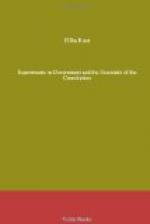Every one of these provisions has a history. Every one stops a way through which the overwhelming power of government has oppressed the weak individual citizen, and may do so again if the way be opened. Such provisions as these are not mere commands. They withhold power. The instant any officer, of whatever kind or grade, transgresses them he ceases to act as an officer. The power of sovereignty no longer supports him. The majesty of the law no longer gives him authority. The shield of the law no longer protects him. He becomes a trespasser, a despoiler, a law breaker, and all the machinery of the law may be set in motion for his restraint or punishment. It is true that the people who have made these rules may repeal them. As restraints upon the people themselves they are but self-denying ordinances which the people may revoke, but the supreme test of capacity for popular self-government is the possession of that power of self-restraint through which a people can subject its own conduct to the control of declared principles of action.
These rules of constitutional limitation differ from ordinary statutes in this, that these rules are made impersonally, abstractly, dispassionately, impartially, as the people’s expression of what they believe to be right and necessary for the preservation of their idea of liberty and justice. The process of amendment is so guarded by the constitution itself as to require the lapse of time and opportunity for deliberation and consideration and the passing away of disturbing influences which may be caused by special exigencies or excitements, before any change can be made. On the contrary, ordinary acts of legislation are subject to the considerations of expediency for the attainment of the particular objects of the moment, to selfish interests, momentary impulses, passions, prejudices, temptations. If there be no general rules which control particular action, general principles are obscured or set aside by the desires and impulses of the occasion. Our knowledge of the weakness of human nature and countless illustrations from the history of legislation in our own country point equally to the conclusion that if governmental authority is to be controlled by rules of action, it cannot be relied upon to impose those rules upon itself at the time of action, but must have them prescribed beforehand.
The second class of limitations upon official power provided in our constitution prescribe and maintain the distribution of power to the different departments of government and the limitations upon the officers invested with authority in each department. This distribution follows the natural and logical lines of the distinction between the different kinds of power—legislative, executive, and judicial. But the precise allotment of power and lines of distinction are not so important as it is that there shall be distribution, and that each officer shall be limited in accordance with that distribution, for without




